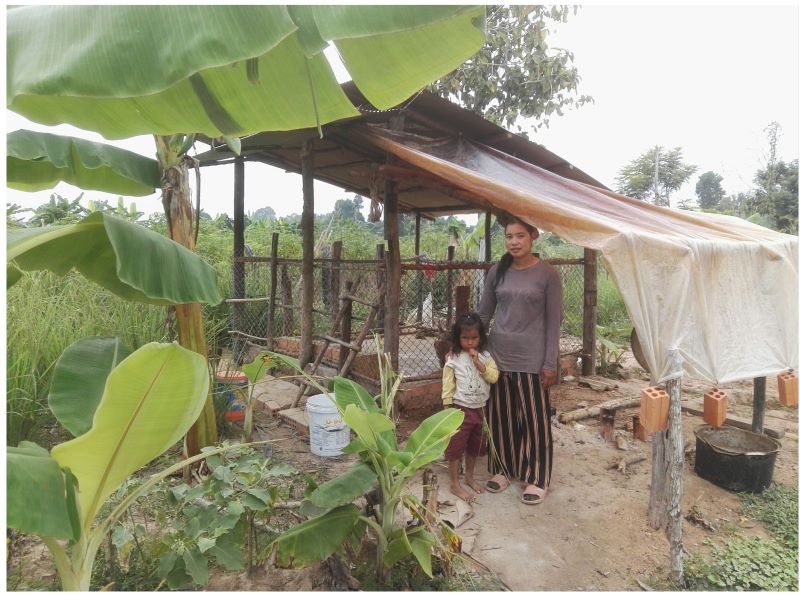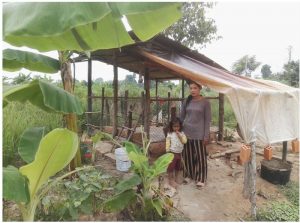Siem Reap, KH – Pig rearing earns money for investments – 30 Nov 2020

Mrs PRS has been raising pigs on their rent-to-own home lot, and in the the last three months the family has earned enough money from selling them to pay a year’s rent in advance for their rent-to-own home, install new fencing around their property, and plant some coconut trees.
Raising pigs for meat or breeding is a way to earn additional income, and the pig manure is a productive addition to compost or garden soil after it has aged for a few months. The piglets have been educational and fun for the children because they playfully frolic and are fun to watch. It has been a small time commitment to ensure the pigs have full feeders and water barrels, so they can be left alone all day. The young son and daughter have better health now, because they are well fed, and their parents can afford to give them a little pocket money to take to the school for food.
For a number of years, Mr PRS’s parents have been one of the seasonal families in the home vegetable garden program run by the Peaksneng Thormacheat Garden Shop, and have also successfully participated in the shop’s pig rearing loan program. Now their son and his family have joined the the shop’s Rent-to-Own home program.
Mr PRS did not always believe in the shop’s garden program, and initially did not follow his parents’ example. Like many local farmers in the area, he relied on one rice crop per year for income, so his wife, small son and daughter had little food when a drought or a flood impacted the crop.
When he first came to the rent to own community, he did not immediately build the required vegetable garden. So the shop manager, Rey Diez, mentored him to manage his income risk by pursuing several complementary income earning activities like his mother and father had done. For example, vegetable gardening, raising livestock like chickens and pigs, and producing organic fertilizer for rice and vegetable fields. As a result, PRS is now becoming very productive by using different techniques like rice straw mulch for vegetable gardens, and vegetable stalks and the trunks of banana trees as good feed for chickens. He has also started to further diversify his income by planting rice, cassava, and banana and coconut trees.
The family has faced the normal dry season challenges of shortage of water for daily use and crop cultivation, followed by the rainy season challenges when there is so much rain that flooding can damage crops and kill livestock.
They dream of continuing to increase their income so that they can purchase some land for their children, and empower them to one day earn an income and support families of their own.

